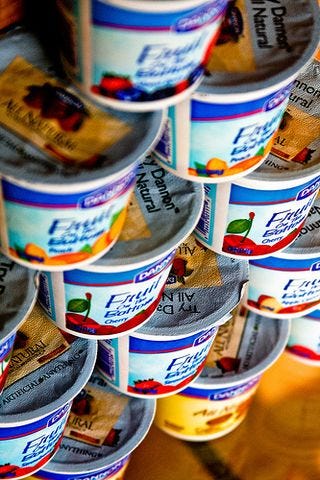You could say good news about plastics recycling came out of The American Chemistry Council (ACC) earlier this week. The group released a new report showing a large increase in the collection and recycling of non-bottle rigid plastics in the U.S.It's easy to think about recycling plastic bottles or aluminum cans, after all, I remember when I was a kid and my school celebrated Earth Day, we all taught which beverages to put in the recycled bin, while we are wore our t-shirts with the earth symbol on it.
February 17, 2012
You could say good news about plastics recycling came out of The American Chemistry Council (ACC) earlier this week. The group released a new report showing a large increase in the collection and recycling of non-bottle rigid plastics in the U.S.
It's easy to think about recycling plastic bottles or aluminum cans, after all, I remember when I was a kid and my school celebrated Earth Day, we all taught which beverages to put in the recycled bin, while we are wore our t-shirts with the earth symbol on it.
But recycling non-bottle rigid plastics, such as yogurt cups and deli tubs, is not something that is often touted, so it's interesting that there is an increase in its recycling.
The report, prepared by Moore Recycling Associates Inc., found that in 2010, nearly 820 million lb of post-consumer rigid plastics were collected for recycling nationwide, an increase of 72% from 2009 and 154% since 2007.
 The ACC said that "non-bottle rigid plastics" include nondurable items (or packaging), such as dairy and deli tubs, lids, yogurt cups and similar food containers, and durable items, such as pallets, crates, carts, 5-gallon buckets and electronic housings. The collection and recycling of non-bottle rigid plastics is relatively new and calculated separately from plastic bottles.
The ACC said that "non-bottle rigid plastics" include nondurable items (or packaging), such as dairy and deli tubs, lids, yogurt cups and similar food containers, and durable items, such as pallets, crates, carts, 5-gallon buckets and electronic housings. The collection and recycling of non-bottle rigid plastics is relatively new and calculated separately from plastic bottles.
Of the 100 largest U.S. cities, the number of cities collecting rigid plastics in addition to plastic bottles doubled in just three years growing from 29 in 2008 to 59 in 2011. This might mean more consumers now have access to recycle their rigid plastics. In addition, many communities are shifting to "single-stream collection," whereby residents are able to place all of their recyclables in the same bin. Simplifying the process has been shown to greatly increase consumer participation in recycling programs, ACC stated.
The report cited the growth in the recycling of rigid plastics in the commercial sector and strong pricing and demand for recycled plastic materials helped spur the growth in this category. Among the five major types of recyclable materials, plastic scrap has the highest economic value per ton with the single exception of non-ferrous metals, according to the report.
The plastics collected in the "non-bottle rigids" category comprise primarily polypropylene (PP) and high density polyethylene (HDPE) as well as lesser amounts of other/mixed resins, polyethylene terephthalate (PET) and low density polyethylene (LDPE).
What do you think about this increase in recycling of non-bottle rigid plastics? Do you think it will continue to increase? Why or why not?
About the Author(s)
You May Also Like


